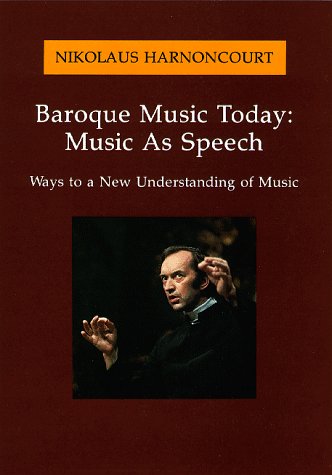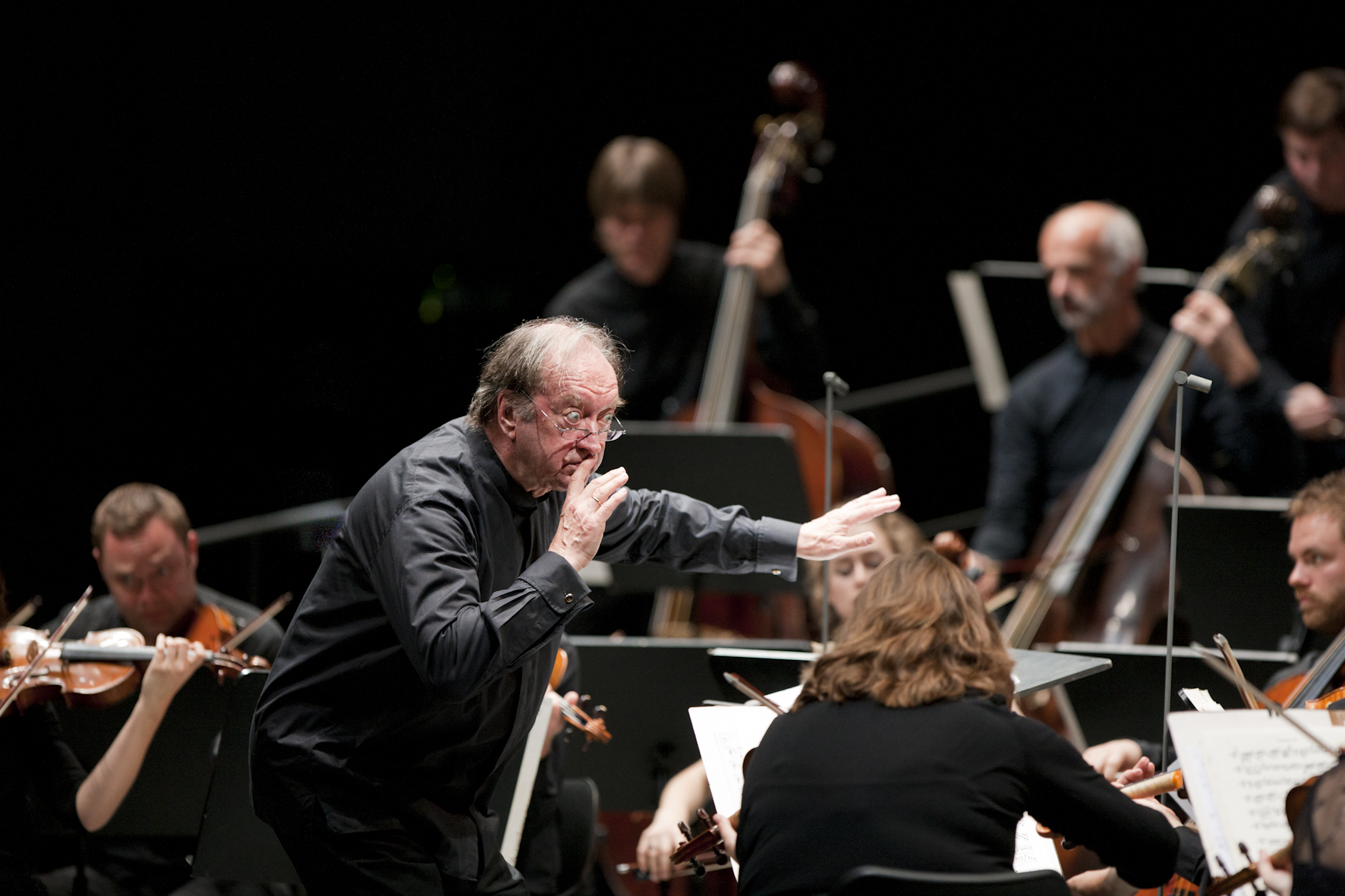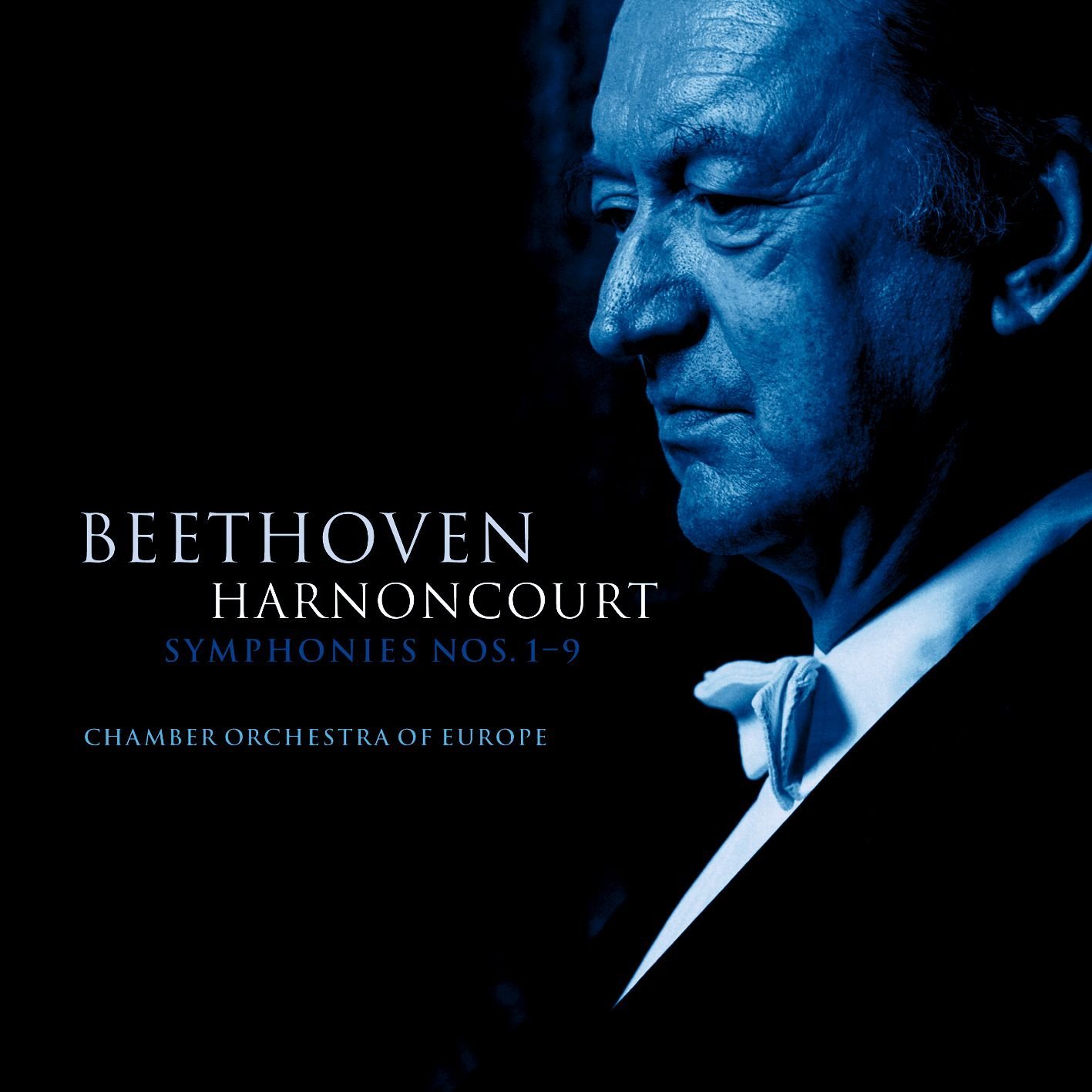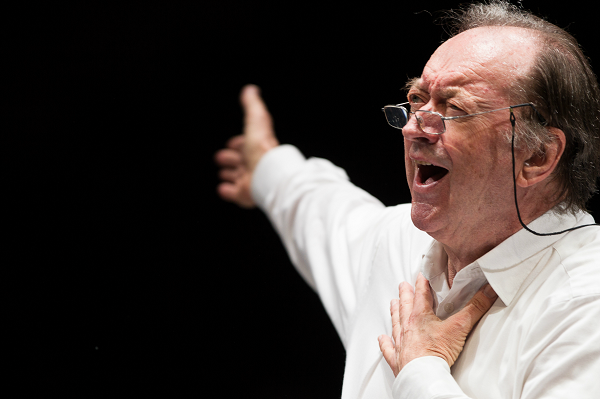2016 began with the passing of Pierre Boulez, arguably the doyen of modernism in the field of classical music. Now, only a couple of months later, it is the turn of Nikolaus Harnoncourt, a musician occupying a similar level of singular elevation but this time in what is often described (certainly inadequately in this case) as the "period instrument" movement.
Harnoncourt was clearly an inspiration to generations of period instrument musicians, including generations like mine that came to the "movement" in the 1970s and '80s; he taught us not only about grammar and its expression, not simply about why – and how – musicians must always seek to lift performance from the merely good to the truly exceptional, and not simply about the importance of music’s role in society, but something beyond. The moment I heard his death announced on the radio (how quaint and appropriate), I went immediately to a particular bookcase in my house, pulled out a moth-eared copy of Baroque Music Today from the late Eighties, and went straight to page 11 of that book to re-read this passage:
 As long as music was an essential part of life, it could emanate only from the contemporary world. It was the living language for something which could not be said in words; it could be understood only by contemporary human beings. Music brought about changes in people, in listeners as well as in musicians. It had to be continually recreated, just as human beings had to keep on building new homes, in keeping with new patterns of living, new intellectual climates. Thus old music, the music of previous generations, could no longer be understood and used, although its great artistry was occasionally admired.
As long as music was an essential part of life, it could emanate only from the contemporary world. It was the living language for something which could not be said in words; it could be understood only by contemporary human beings. Music brought about changes in people, in listeners as well as in musicians. It had to be continually recreated, just as human beings had to keep on building new homes, in keeping with new patterns of living, new intellectual climates. Thus old music, the music of previous generations, could no longer be understood and used, although its great artistry was occasionally admired.
Since music is no longer found at the centre of our lives, all this has now changed: now it is regarded as an ornament, it is felt that music should first and foremost be "beautiful". Under no circumstances should it be allowed to disturb or startle us.
Perhaps this is the key passage in understanding his view as to exactly how time relates to, perhaps owns, interpretation. And to how performance must always respond to a need in society as well as propel the drive of the performer. Clearly, these are not the words of one who wished us to continue habitation in what had often actually turned out to be a cross between a church and a museum, rather than a seat of disturbance and revolution. (Pictured below by Werner Kmetisch: Harnoncourt conducting the Chamber Orchestra of Europe at Styriarte 2010.)

Harnoncourt, even when absent, was a constant help in freeing us from that constriction, and in the constant injunction to disturb and startle, to engage in that most important activity of "continual recreation", he provided the very touchstone of performance pedagogy in the second half of the 20th century. From Leonhardt and Brüggen we learnt to try and master phrases constructed with accurate grammar, but it was Harnoncourt who led us to the further reaches of performance, showing what a contemporary musician’s responsibility was in the act of communicating that grammar.
He pushed musicians wherever he was: encouraging everyone who crossed his path to think anew in every performance, providing no less than a cauldron of creativity to partner any apparently acquired knowledge. And aside from that fire, aside from the almost hell-bound demonic clattering cacophony that emerged from his Viennese baroque continuo players (try the early Brandenburg 6 recording for size) or the heart-stopping clenched fist power that he summoned from informed but modern instrument renditions of Beethoven symphonies with the Chamber Orchestra of Europe, here was one of the 20th century’s most penetrating and revelatory minds.
 From the rarefied heights of Concentus Musicus to the globalised virtuosity of Lang Lang, and with many great orchestras and singers in between, he spread inspiration, knowledge, aspiration and enjoyment wherever he went. In the words of Franz Welser-Möst, Harnoncourt was "an interpreter who changed our world more than any other over the past 50 years".
From the rarefied heights of Concentus Musicus to the globalised virtuosity of Lang Lang, and with many great orchestras and singers in between, he spread inspiration, knowledge, aspiration and enjoyment wherever he went. In the words of Franz Welser-Möst, Harnoncourt was "an interpreter who changed our world more than any other over the past 50 years".
Yet, remarkably, of all those who sought to embrace works of the past (not in the past), he was not only one of the most profound, but also the most humble, the most gentle and the most intellectually generous. We learn that "maestro" was a term that he reserved for his hairdresser. Now it is time’s turn to return the compliment.














Add comment